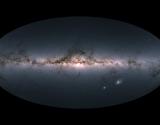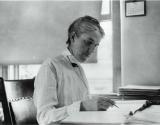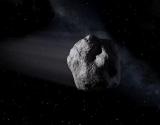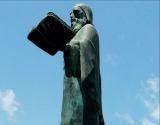The key astronomical date of this December is, without question, the launch of the James Webb Space Telescope. The astrophysicist Jordi Miralda (ICREA-ICCUB) will tell us all about the event and about the science behind the mission next Thursday, December 2nd at the Library of the University of Lleida.
James Webb Space Telescope is a mission that is born out of an international partnership with the European and American space agencies. It will explore every phase of the cosmic history of the Universe—from within our solar system to the most distant observable galaxies in the early universe, and everything in between. Webb will reveal new and unexpected discoveries, and help humanity understand the origins of the universe and our place in it.
Here you have all the information about the activity:
TALK: “JAMES WEBB SPACE TELESCOPE. THE NEW TOOL TO OBSERVE THE FAINTEST, MORE DISTANT AND MORE PRIMITIVE GALAXIES OF THE UNIVERSE”
In this talk, we will discuss the reasons why it is advantageous to have optical telescopes on space and why we want to make observations on the infrared with JWST. We will also see which trajectory will the telescope follow and we will analyse the reasons why we are interested in having it further away from Earth than other telescopes like Hubble are and why it carries a screen that prevents solar light from hitting it. Lastly, we will discover what science we expect JWST to do, specially on fainter galaxies that were formed at the beginning of the Universe.
When? Thursday, December 2n, 7:30 pm
Where? Library of the University of Lleida, Cappont Campus
Organised by Societat Astronòmica de Lleida
Collaborators Agrupació Astronòmica de Terrassa, Institut de Ciències del Cosmos de la Universitat de Barcelona, Institució Catalana per a la Recerca i Estudis Avançats, Universitat de Lleida
No registration is necessary to enter the activity. Access will be granted until all the places are filled. The proper use of a mask is compulsory.
About the author







